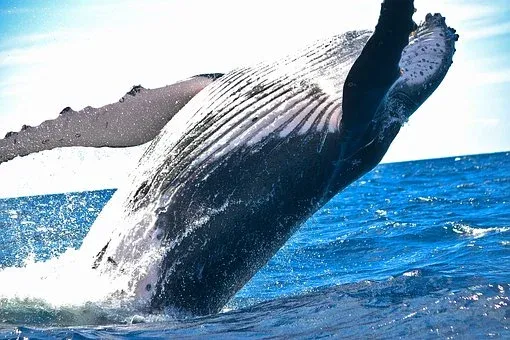JUNO community has a big decision to consider.
A fascinating discussion is happening in the JUNO community at the moment, that could have some far reaching ramifications. Long story short, the community is debating whether to remove over $100 Million worth of JUNO from one whale's wallet, and put it in the community fund. The exact proposal can be found here, but I'll try to fill in my understanding of the situation and see what people have to say on the matter.

JUNO airdrop.
To understand exactly what is going on with this proposal, you have to go back in time to the birth of the project itself. The JUNO chain launched with a large airdrop, with a significant portion of the tokens dropped to ATOM holders. The snapshot for this drop was the ATOM upgrade around 12 months ago, which was also the base for the Osmosis drop and others. Certainly holding ATOM at that time has been very lucrative for many.
When the airdrop took place, part of its composition was a "whale cap" of 50,000 JUNO. So, the most that any one entity was meant to get was 50K. However, a short time after the drop was distributed, and the chain came to life, numerous wallets transferred 50K JUNO each all into one wallet. It became apparent to the community that the airdrop had been gamed. This whale had large amounts of ATOM spread across a number of wallets, and ended up qualifying for multiple airdrops.
As you can see currently, this whale holds over 3.1 million JUNO worth around $120,000,000 currently. Looking at the wallets activities, it is clear that it is regularly claiming and selling all its staking rewards, worth around $250,000 per day. From following a chain of TX's and IBC transfers, it appears these rewards are being traded back into ATOM, with some at least being staked.
Proposal 4.
Back in October last year, a proposal was put out to correct this distribution, with Prop 4 submitted. At the time, information came out from the whale claiming that the ATOM funds were being managed by them as part of an investment fund, that they had no intention to game it and where not aware that the drop would be whale capped, and they where committed to acting in the best interests of the chain. That proposal was voted down, so the whale got to keep all their tokens.
Proposal 16.
Now the issue has re-emerged, and Prop 16 is on the table and open for voting. This prop has the support of Core-1, the team behind JUNO. So far, early voting looks like there is strong support for the proposal. Over 56% of stake has already voted, with 91% of the votes being yes. Many validators have posted on twitter with details of how they have voted, and why. For those not familiar with how votes go in Cosmos eco-system chains, people stake to validators. When a validator votes, the full amount of stake they have delegated gets voted that way, however, individual stakers can overrule that vote by making their own. So, in this case it seems that the vast majority of validators are in favor of this prop.
My thoughts.
This is an interesting one, and I can see both sides of the argument. On one side is the fact that the outcome of the airdrop was not as intended, and couldn't be fixed at the time. In hindsight, one whale gained an unfair advantage in the distribution and this prop aims to rectify that. The whale has a significant portion of the stake, and their choices could harm the JUNO eco-system, if they wished.
It is my understanding that this airdrop was not gamed intentionally. The whale in question seems to have set up numerous wallets (50 it seems) each holding 50,000 ATOM way before any airdrop was even hinted at, way before any snapshots occurred, way before even the Cosmos upgrade that was the source of the snapshot had even been developed. The gaming of the drop was not intentional, it was simply a byproduct of how this particular whale managed their funds.
Following on with these discussions, I am having flashbacks to the for that created HIVE, in which some specific wallets (Justin SUN and his supporters) had their wallets zeroed on the fork chain (HIVE). This case however has a major difference, in that a fork is not occurring, the chain is simply proposed to be upgraded to enable a shift of most of this whales funds into the community pool.
Removing well over 100 million dollars of someone's funds is a major precedent, and one that deserves the level of discussion and debate that is currently going on.
For what it is worth, I am leaning towards voting no with my insignificant stake of JUNO. The whale did not set up their wallets with the intention of gaming the drop. I am very conflicted on this decision however, and fully understand and can appreciate the community push towards a yes vote. Is the immutability of a chain something that is open to governance voting? I guess it seems to be, given the way this vote is happening.
Like I said, I am very conflicted, and understand both sides of the argument.
What do you think?
JK.
If you enjoyed this post, here are some more of my recent posts you may enjoy:
